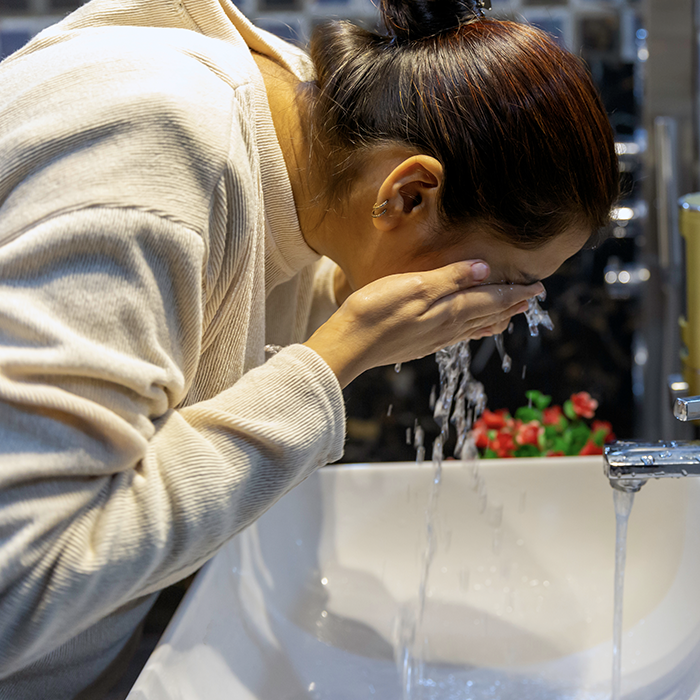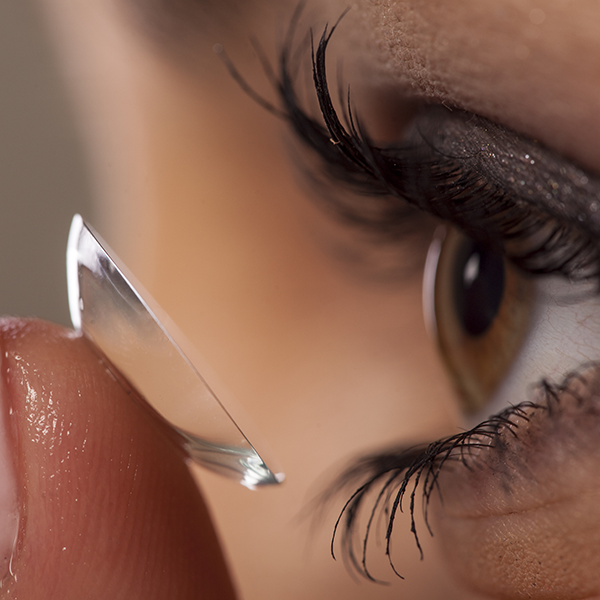Shutterstock. ID: 1621062490.
Managing Ocular Infections
What to do if you notice signs of an eye infection
There are many different types of eye infections,1 which means eye care professionals need to diagnose the problem before they can prescribe the proper treatment.1 Early diagnosis and treatment can prevent complications.2
If you think you might have an eye infection because of symptoms like redness, itching or watering eyes,3 visit an optometrist or ophthalmologist for an eye exam.3 You shouldn’t try to diagnose the problem on your own, because an eye infection that doesn’t get the right treatment could damage your sight.1
Read here about the symptoms of common eye infections and, if you suspect you have one, make an appointment with an eye care professional as soon as possible.
Taking care of your eyes during treatment
Eye infections can happen because of bacteria, viruses or fungi.2 They can also be caused by allergic reactions, chemical substances or eye injuries.2
Your ophthalmologist will decide on the best treatment for your type of infection.1 This might include antibiotic medication, eye drops or topical ointment.2
There are also some steps you can follow to look after your eyes and stop the symptoms from getting any worse:
- Avoid touching and rubbing your eyes3
- Don’t wear contact lenses until the infection has healed4,5
- Don’t wear any eye makeup until the infection has healed4,5
- Take an over-the-counter medication to help relieve pain and swelling2
- If you have a stye or chalazion, don’t squeeze it or try to ‘pop’ it5,6
Depending on the type of eye infection you have, your eye care professional might recommend gently washing or soaking your eyelids and lashes to keep them clean,4 or using warm compresses to help with drainage.6
Read these easy step-by-step instructions on how to use an eyelid wash and a warm compress at home.

Shutterstock. ID: 1674521395.
Tips for preventing eye infections
Good hygiene can help to prevent common eye infections, by keeping harmful microbes away from your eyes.4-6

Prevent ocular infections with these hygienic habits:
- Wash your hands before touching the area around your eyes5
- Keep your eyelids and eyelashes clean5
- Wash your bedding and towels regularly3
- Wash your face before bed, to remove dirt and makeup5
- Don’t use expired eye makeup (eyeliner, eye shadow, mascara, etc.); replace it every three months5
- Don’t share eye makeup with anyone else5
If you wear contact lenses, use them as prescribed and take proper care of them:5-8
- Wash your hands before removing or handling your contact lenses6,8
- Keep your lenses clean5
- Don’t over wear your lenses3
- Keep your contact lens case clean3
- Always use fresh cleaning solution to disinfect the lenses3
- Don’t wear your lenses while sleeping8
- Don’t wear your lenses while swimming8
Read more here about looking after your contact lenses properly.

Avoid the spread of eye infections
If you have an eye infection, there is a risk you can pass it on to other people.3 These tips will help to prevent the spread:
- Wash your hands often3
- Don’t rub or touch your eyes with your hands3
- Wash any bedding, clothing or towels that may have touched your eyes3
- Always use a clean towel, cloth or tissue to wipe your eyes or your face7
- Don’t share your eye makeup or other eye-care products5
- Avoid touching someone who has an eye infection2
IMPORTANT: If your symptoms get worse, see your eye care professional immediately.1 Seek emergency medical help if you have eye pain or vision loss.8

Ocular infection

Common types of ocular infection

Managing ocular infections
Home

Do I have an ocular infection?

Treating ocular infections



